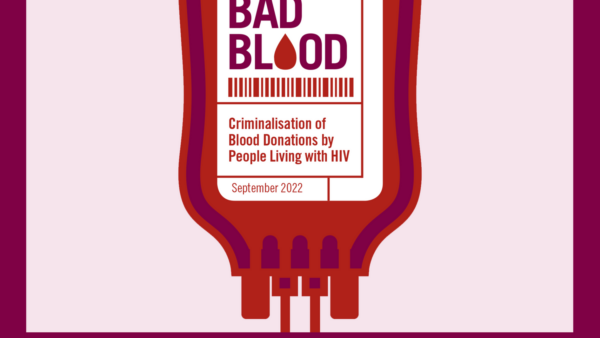Overview
The Criminal Code of Belize previously contained an HIV-specific provision which criminalised HIV ‘exposure’, and non-disclosure. In July 2023, this law was repealed.
Prior to repeal, section 46A penalised any person who ‘deliberately or recklessly transmits or spreads HIV/AIDS’. This offence carried a sentence of imprisonment up to five years for a summary conviction, or up to ten years for a conviction on indictment. Although this provision seemingly required actual transmission, section 73A defined its scope so that transmission was not in fact required.
Section 73A stated that an offence was committed where a person ‘knows that he (sic) is infected with HIV/AIDS’ and does a sexual act, defined as vaginal, oral or anal intercourse, with another that involves bodily contact and is capable of transmitting bodily fluids, and does not inform the other person of their status. Section 73A also stated that an offence was committed under this provision where the person ‘knows that he (sic) is infected with HIV/AIDS’ and gave a blood donation or did anything ‘likely to cause another person to be infected with HIV/AIDS’ (see our report, Bad Blood, for a global analysis of the criminalisation of blood donations).
In effect, this means that despite its title, the law criminalised HIV ‘exposure’ and non-disclosure, as transmission did not have to be proved. The law should apply only where a person has knowledge of their HIV status, and where, without informing their partner of their status, they engage in a sexual act in which bodily fluids can be transmitted – seemingly regardless of whether that act is capable of transmitting HIV – or where they give blood or do anything else ‘likely’ to cause transmission.
During their lifetime, there were no reported cases under these provisions specifically. In a 2008 rape case, the fact that the defendant knew that he was HIV-positive when he committed rape against the victim was taken into account. The Court of Appeal described this as a “grave aggravating factor” and deemed the 18-year prison sentence passed down by the trial judge appropriate.
In June 2023, it was reported that cabinet had approved the repeal of the HIV-specific law, subject to parliamentary approval. The proposal to repeal had been led by the Ministry of Human Development, in collaboration with the Ministry of Health and Wellness, following recommendations by partners. Minister for Human Development, Dolores Balderamos-Garcia, pointed out that health officials deem the law unnecessary for the protection of public health, and that it ran counter to human rights protections. By the end of June, the House of Representatives had approved the proposal, and the Senate did likewise in early July. On 27 July 2023, the law received assent, and it was published in the gazette the following day, confirming repeal of sections 46A and 73A.
Laws
Criminal Code of Belize
Sections 46A. Deliberate or reckless spreading of HIV/AIDS
(1) In this Code, “HIV/AIDS” means the Human Immunodeficiency Virus/ Acquired Immune Deficiency Syndrome.
(2) Every person who deliberately or recklessly transmits or spreads HIV/AIDS shall,
(a) on summary conviction, be liable to imprisonment for a term not exceeding five years; and
(b) on conviction on indictment, be liable to imprisonment for a term not exceeding ten years.
Section 73A. Deliberate or reckless spreading of HIV/AIDS defined
(1) A person deliberately or recklessly spreads HIV/AIDS if the person does any act specified in subsection (2) or (3) of this section.
(2) Subsection (1) applies where the person,
(a) knows that he is infected with HIV/AIDS; and
(b) does a sexual act with another person which involves bodily contact and is capable of transmitting bodily fluids; and
(c) does not inform the other person that he is infected with HIV/AIDS.
(3) Subsection (1) of this section applies where the person,
(a) knows that he is infected with HIV/AIDS; and
(b) donates blood or does anything not provided in subsection (2) which is likely to cause another person to be infected with HIV/AIDS.
(4) In this section “sexual act” means vaginal, oral or anal intercourse.
Further resources
Decision from the Court of Appeal of Belize who considered that the appellant’s conduct in having sexual intercourse knowing that he was HIV positive, was a grave aggravating factor. The sentence of 18 years was upheld.
HIV Justice Network's Positive Destinations
Visit the Belize page on Positive Destinations for information on regulations that restrict entry, stay, and residency based on HIV-positive status, as well as access to HIV treatment for non-nationals.



